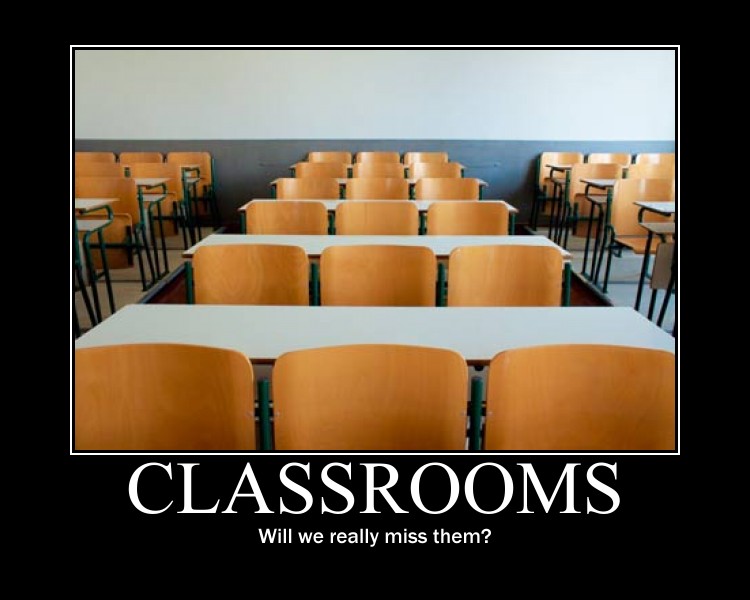Recently I was checking my emails and I came across a forwarded email from my dad. Usually whenever I see an emails marked with a FW: in the subject I almost always delete it because I hate chain mail. However, I felt guilty simply deleting my dad's email, so I figured I would give him the benefit of the doubt and read it and man was I pleasantly surprised! The email was actually a really interesting read that made me think about what the future holds as a result of our technological advancements. The title of the email was: "9 Things That Will Disappear In Our Lifetime" and listed the following items as things that would be gone as a result of technological advancements: The Post Office, The Newspaper, The Book, The Land Line Telephone, Music, Television, The "Things" That You Own, Privacy.
Initially I wanted to write this blog entry about how it was interesting to think that if we were to mention something like a "Cheque" or a "Newspaper" to our future students, they may have no idea what we are talking about. However, when I typed the title of the email on google I found Doug Johnson's blog and an post he wrote in response to the email as well as his own list of 9 things that will disappear from K-12 Education. I actually found this even more intriguing than the initial email because these predictions would really impact the way that we teach if they were to come true. Here's the list that Doug created:
- Book-only libraries and librarians. Libraries will remain, they just won't be repositories and tombs, but active places where students go to create and consult with information experts. Actually these libraries are already rapidly going.
- Textbooks. CMS like Moodle that provide links to multi-media resources, tied to specific curricular outcomes and teacher passions will be the norm. Add curriculum guides in 3-ring binders to this list too.
- Paper tests, worksheets, study guides, and student essays. Paper report cards, school newsletters, and student handbooks. It's all moving to the web, boys and girls. It's just easier.
- Classrooms comprised of age groupings. This has been a dumb idea for a long time, only continued out of sentimentality and laziness. Students grouped, if grouped at all, by IEP needs makes more sense if we are serious about all kids learning.
- Closed wireless networks and prohibition of student-owned devices in the classroom. We once didn't let kids on the network? They couldn't use their own computers in school. Grandpa, you've got to be kidding me.
- Technology-clueless, content-expert only teachers. Information ubiquity is requiring all teachers become process-experts as well as pedagogy/content experts. And since that information comes in digital forms, technology expertise at some level is a must.
- Norm-referenced/summative testing. Using tests to sort kids into A-F categories just is not needed, even counterproductive, in a society where there are no jobs for D and F students. Private schools will move to formative assessments and growth models only first, but any public school worth its salt will also do what it must to placate the politicians and do what's right by kids.
- Computer labs. Whether it is BYOD or 1:1 initiatives, personal student devices will make labs obsolete. I am even amazed at what low-powered devices like iPads can do with video editing.
- F2F parent teacher conferences. Real-time monitoring of student progress through parent portals into the student information system makes such conferences as we know them unnecessary. If they continue they will need to be conversations about students rather than one-way reporting.

No comments:
Post a Comment